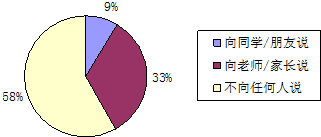题目内容
9.this book is designed to help you improve your reading comprehension skills by studying 20minutes a day for 20days.You'll start with the basics and move on to more complex reading comprehension and critical thinking strategies.Please note that although each chapter can be an effective skill builder on its own,it is important that you proceed through this book in order,from Lesson I through Lesson 20.Each lesson builds on skills and ideas discussed in the previous chapters.As you move through this book and your reading skills develop,the passages you read will increase both in length and in complexity.The book begins with a pretest,which will allow you to see how well you can answer various kinds of reading comprehension questions now,as you begin.When you finish the book,take the posttest to see how much you've improved.
The text is divided into four sections,each focusing on a different group of related reading and thinking strategies.These strategies will be outlined at the beginning of each section and then reviewed in a special"putting it all together"final lesson.
Each lesson provides several exercises that allow you to practice the skills you learn.To
ensure you're on the right track,each lesson also provides answers and explanations'for all of the practice questions.Additionally,you will find practical suggestions in each chapter for how to continue practicing these skills in your daily life.
The most important thing you can do to improve your reading skills is to become an active reader.The following guidelines and suggestions outlined will familiarize you with active reading techniques.Use these techniques as much as possible as you work your way through the lessons in this book.
65.According to the passage,the pretest aims toA
A.tell you where your starting level is B.arouse your interest in using the book
C.illustrate the structure of the text D.introduce the test-taking techniques
66.According to the passage,which of the following is NOT true?D
A.Each chapter has an internal relationship with the previous chapter.
B.The texts are arranged in the order of length and complexity.
C.Different reading strategies are listed at the beginning of each section.
D.The author suggests using the book selectively according to readers'level.
67.What is the author most likely to talk about in the following paragraph?C
A.The function of each chapter.
B.The outline of each section.
C.The ways to be an active reader.
D.The guidelines in using the book.
分析 本文属于说明文阅读,作者通过这篇文章主要向我们描述了一本可以提高你的阅读理解能力的书,分为四个部分,每个章节都可有一个有效的技能培训,并有具体的指南和建议帮助你掌握技巧.
解答 65.A.细节理解题.根据文章第二段"The book begins with a pretest,which will allow you to see how well you can answer various kinds of reading comprehension questions now,as you begin"可知前测的目的是让你清楚自己在看书之前的水平;故选A.
66.D.细节理解题.作者只强调了这本书可以帮你提高阅读水平,并没有说要根据自己不同的水平选择不同的书;故选D.
67.C.推理判断题;根据文章最后一段"The following guidelines and suggestions outlined will familiarize you with active reading techniques"可知接下来可能讨论的是主动阅读的方式;故选C.
点评 考察学生的细节理解和推理判断能力,做细节理解题时一定要找到文章中的原句,和题干进行比较,再做出正确的选择.在做推理判断题不要以个人的主观想象代替文章的事实,要根据文章事实进行合乎逻辑的推理判断.

练习册系列答案
相关题目
19.I must decline because the conditions you offered are not ___.( )
| A. | accessible | B. | available | C. | comfortable | D. | acceptable |
